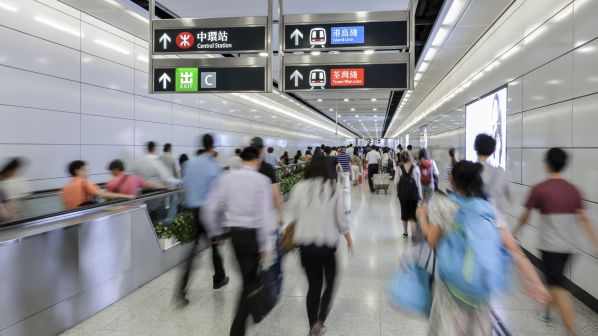In its provisional first half results, MTR expects to report a $HK 5.2bn profit from its property development businesses in the first six months of the year, a significant improvement on the $HK 800m reported in the same period of 2019. However, this is more than offset by the expected property revaluation loss on the group’s investment property portfolio of $HK 6bn. In addition, profit from recurrent businesses is expected to fall significantly from $HK 2.6bn in 2019 to $HK 400m in the first half of 2020.
This reduction is reflected in ridership on the company’s services throughout the first six months of the year as the coronavirus pandemic took hold. In total MTR reports carrying 637.2 million passengers, down from 1.022 billion in the same period in 2019, a fall of 37.7%.
The operator reported the biggest reductions of traffic in February, March and April, with respective -47.5%, -46.4%, and -48.1% declines in passengers. The operator carried 125.1 million passengers in June, the best since 140.2 million in January, but still someway short of the 167.7 million carried in June 2019.
Despite the financial problems, MTR says it remains in a sound overall financial position.
From July 1, MTR increased train frequency during weekday non-peak hours and at weekends and public holidays on all heavy rail lines apart from the Disneyland Resort Line and the Airport Express. Trains are now operating at three to seven-minute intervals, up from three to 10-minute intervals previously. MTR retained its peak hour frequency during the pandemic.
The operator also announced a number of special offers to attract passengers back to its services, including a 20% rebate for every Octopus smartcard trip and a $HK 100 price reduction on “Monthly Pass Extra” and “MTR City Saver” passes up to December.
An exclusive interview with MTR CEO, Dr Jacob Kam, will appear in the August 2020 edition of IRJ.

